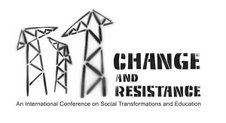Marcin Boryczko
The conscious and intelligent manipulation of the organized habits and opinions of the masses is an important element in democratic society. Those who manipulate this unseen mechanism constitute invisible government which is the true ruling power of our country.
Eduard Bernays
The problem I would like to deal with is widely understood, the consent of the governed in the democratic states. What is symptomatic of post-communist countries is the process of constructing people’s consent after the fall of eastern block. With the benefit hindsight the revolutions of 1989 turned out to be the common quenching of the thirst for democracy with the drink from the Lethe, the river of producing forgetfulness. On closer inspection, this process resembles what Pareto defined as the elite circulation. Empire cannot fall.
In my presentation I would like to analyze the problem of legitimization of power in contemporary post-communist states in which, as I believe, political practice seems to indicate the renaissance of the significance of political myth. The functioning of these countries confirms the thesis of the end of the end of politics. The symptom of this phenomenon is doing democracy in terms of consensus instead of participation. It turns out that the solving problems of the state might constitute necessary and sufficient condition for the legitimization of power. The strategy of ruling in this type of power instrumentalization and ‘the ruling for the people’ requires broad consensus, as far as common consent is concerned. In political practice this means that actions of the democratic governments results from the alleged consent of the governed to the current actions of the governments. A consensus can be reached in reality of instrumentalized politics by means of myths which will account for the actions of the governments.
During my presentation an attempt will be made at specifying the role of the school in the process which I have described above. This will be discussed in macrostructural dimension. I would like to pose the problem in a following way: how does the school participate in the process of producing social conditions of constructing consent. In our age the question of reproduction should be extended to the question referring to the distribution of knowledge at school. What makes this distribution possible is the functioning of myth at the school level. These myths, in term, constitute the consent reproduction condition on the ‘democratic’ basis.
Subscribe to:
Post Comments (Atom)

No comments:
Post a Comment